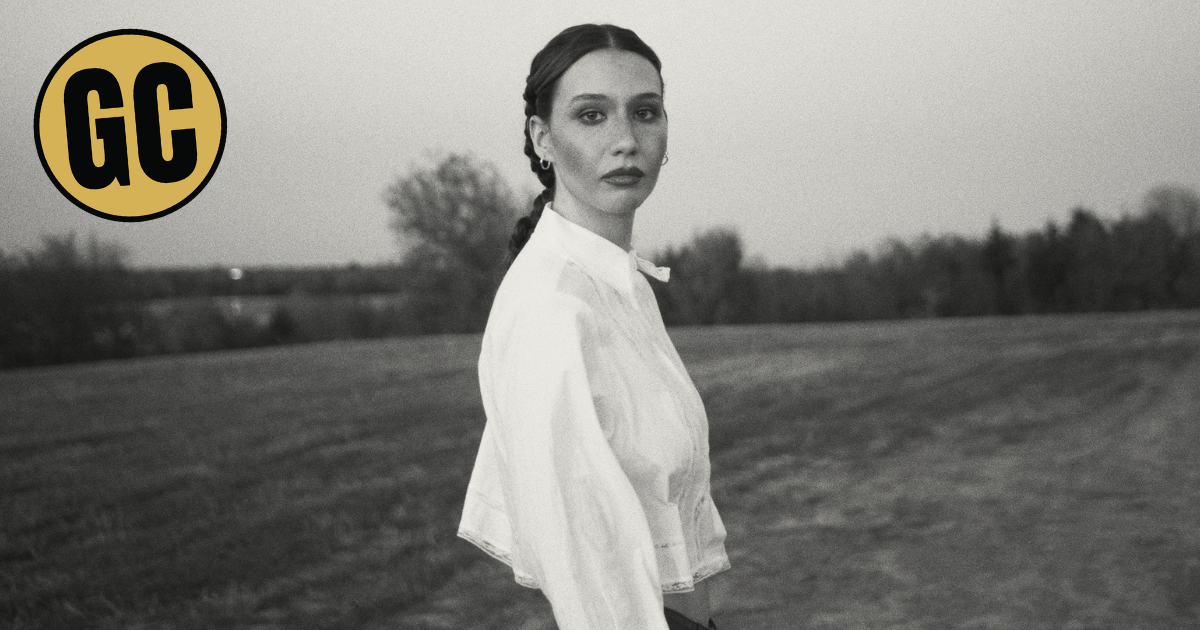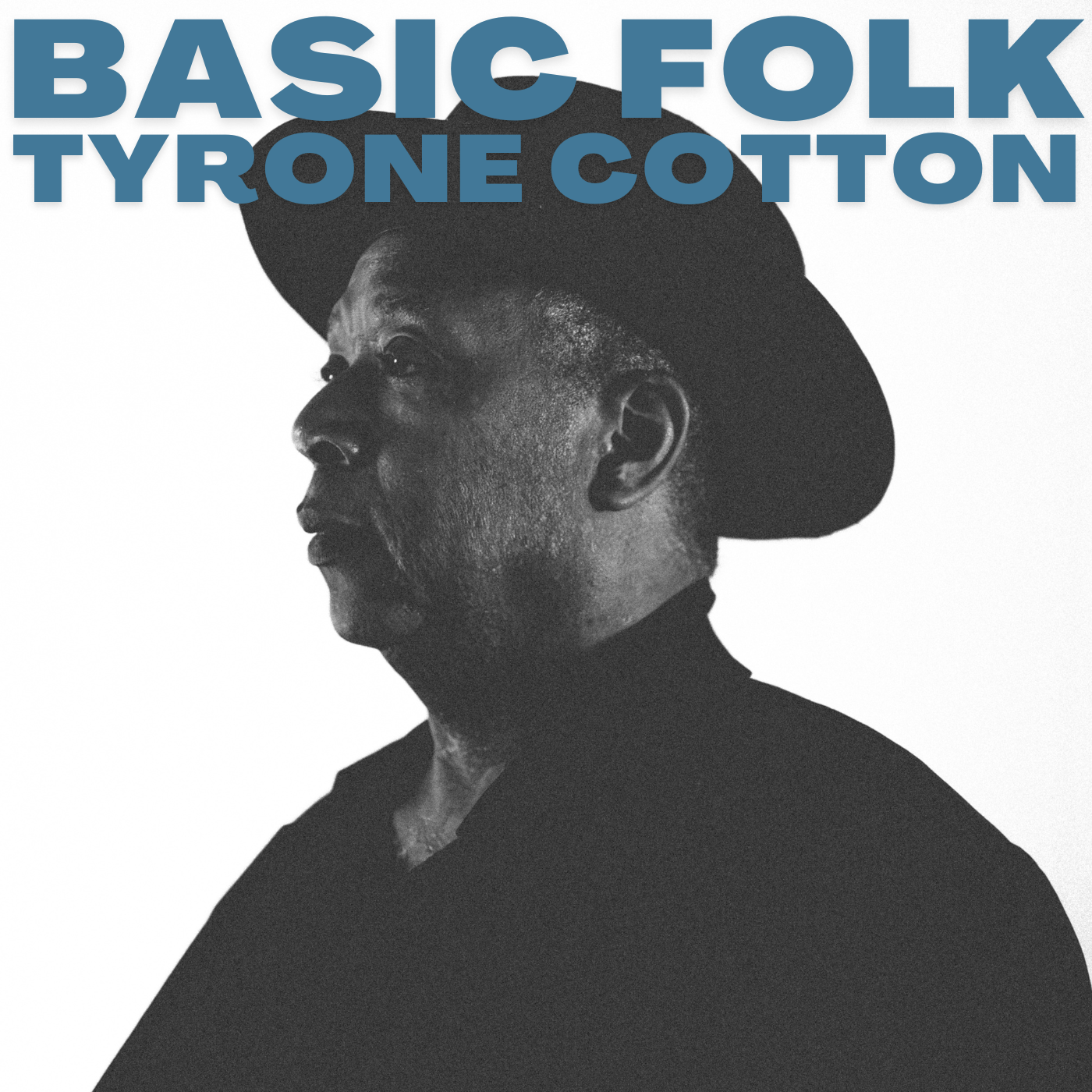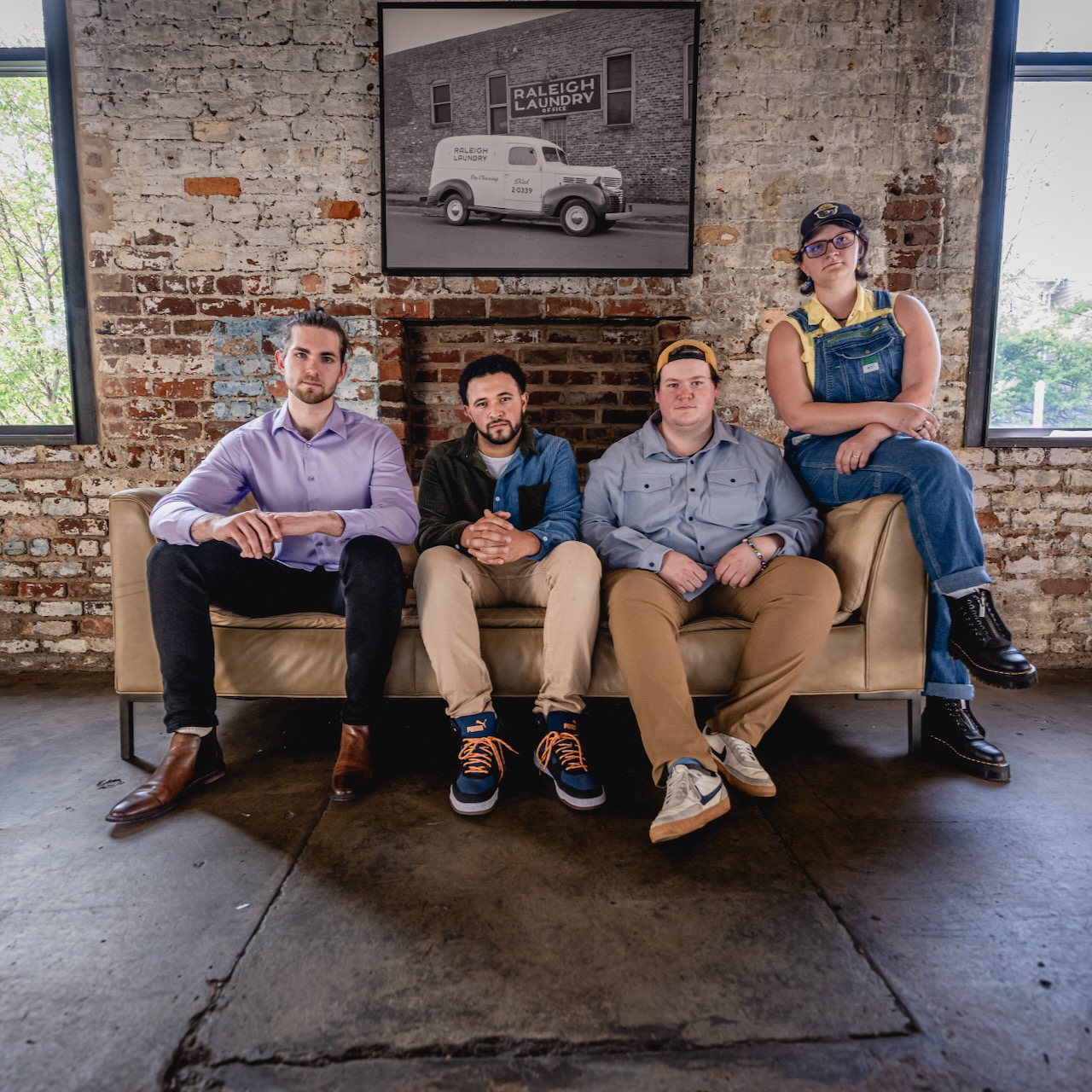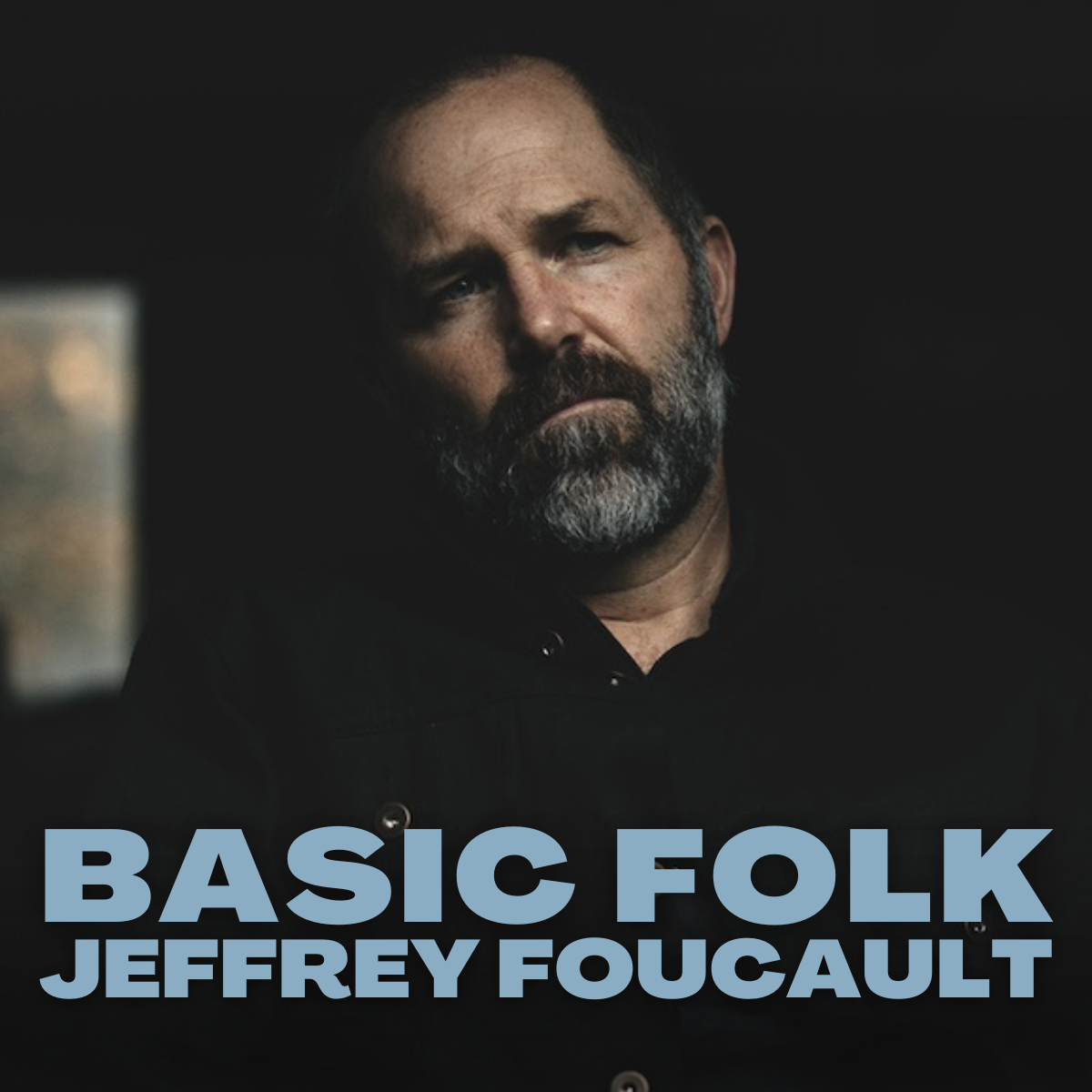As an artist who believes the sad songs of the world could be a little sadder, of course there’s a haunting beauty to the work of Ken Pomeroy.
With her debut album, Cruel Joke, the 22-year-old Oklahoma-born Cherokee Nation member gives fans a gorgeous tribute to inner unease rooted in the wisdom of her own hard times. Pairing a feathery, lilting vocal with an earthy folk sound – plus metaphoric themes filled with animals and the lessons of nature – she looks back on a difficult upbringing, turning tears into sonic transcendence.
Pomeroy’s “Wall of Death” was featured in the 2024 film Twisters, and she’s been on the road with everyone from Lukas Nelson and Iron & Wine to American Aquarium and John Moreland. Good Country even featured the track “Cicadas” back in 2024. But with Cruel Joke, the world finally gets a full look at a “deep feeling” talent on the rise.
Speaking from her home in Tulsa, Pomeroy fills us in on the making of her debut album and an origin story with no punch line.
For folks who don’t know, tell us a little bit about where you’re coming from. You grew up in Oklahoma and you’re part of the Cherokee Nation, right? Does that show up in the tunes?
Ken Pomeroy: Oh, yeah. I never really tried to put it in anywhere. I think it just fits in naturally with how I write music in general. There are a lot of themes of nature and traditional storytelling elements that I include – animals and things of that sort – that I think carry through just naturally. And storytelling is such a huge part of pretty much every tribe, and specifically the Cherokees are huge storytellers. So I don’t think it’s a coincidence I’m writing songs and telling stories.
No, I bet not. I love the way you’re able to use animals. It seems like a great way to talk about yourself or other people, but through metaphor. Does [the use of animals] make that a little bit easier?
Absolutely, yes. I think kind of assigning someone something, it makes it 10 times easier, not so direct.
Like an artful way of saying something that’s hard to say?
Yes, absolutely.
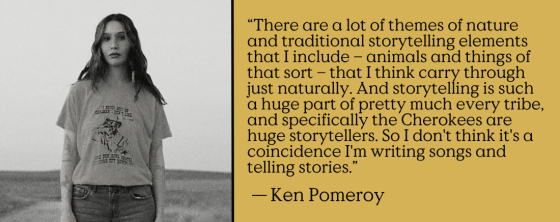
Tell me a little about where your sound comes from. So many moments on Cruel Joke are hushed and haunting. What did you grow up listening to? Where did you pick up music?
Well, honestly, I’ve been playing music and writing for longer than I haven’t been. I really got started from hearing John Denver when I was 6 or 7 years old. That was the start. I wanted to do that and I wanted to make people feel like he made me feel at that moment. It was like a third eye opening about maybe I could do this. And the album, when I sit down and write a song, I am not thinking about production really. I just kind of write the song, me and my guitar, and then that’s the song. My partner, Dakota McDaniel, produced most of the record. It’s such a natural working. … It’s been so easy getting to the right final form of the song with Dakota and I’m really thankful that that worked out. For the record, we were listening to Big Thief and Buck Meek and Jake Xerxes Fussell. Jake was a huge inspiration with the instrumentation we used. It was a very steel-heavy approach.
I can hear that for sure.
It’s called Cruel Joke. What do people need to know about this album from your perspective?
I think from the beginning, with any of my music in general, I just don’t want people to feel alone in anything. I am a real deep feeler, so sometimes I feel like it’s just the tip of the iceberg with sad songs in the mainstream. I feel like they’re not as sad as they could be. I try to make people not feel so alone in those really deep feelings, just because I’ve kind of had to feel that.
Your songs definitely cut pretty deep, emotionally. Have you always been the type of person to root around inside yourself and stir things up?
Oh, yeah. Yes. I grew up very quickly and I had a lot of adult-sized feelings as a kid that I didn’t really know how to deal with. And dealing with these unresolved childhood feelings later on is not for the weak. I feel like everyone goes through it, and I’ve really always tried to stay in touch with just how I’m feeling, or what goes on in my head. Songwriting is how I feel like I do that.
You’ve had some big things happening, like with Twisters and being on the road with John Moreland. How do you feel about today’s appetite for the music you make? Are we ready for another folk revival?
That’s a great question. I really think we are in for a new wave of music, just because I feel like going country is as popular as anything right now. Everybody is going country, which can be a little disheartening. It’s not super genuine on some fronts, but I’m really excited for people to explore the genre and I hope people who explore the genre take a deep dive on where it comes from and who were the pioneers, because it has so much history. I feel like country and bluegrass and folk music have so much history.
I read that you wrote one of these songs at 13, right? Does it still speak to you or still feel true?
Yeah, totally. It’s “Grey Skies.” I remember that being the first song I was ever proud of and I think that’s really special to have still around. Even though I might get tired of it, I have to remember my 13-year-old self was proud of it. But yeah, that was also the first time I feel like I really found “my thing” with writing. I included a lot of imagery with nature and animals and that was the first time I was like, “Maybe this is kind of my vein.”
Tell me about “Wolf in Sheep’s Clothes.” This one is a love song, but which person is the hidden wolf?
Oh, gosh. … Everyone laughs, because I say it’s a love song and then it’s called “Wolf in Sheep’s Clothes.” So it’s kind of like, “Well, is it?” But it definitely is. The person I’m writing to is a protector of some sorts, can see through all of the bullshit in the world that maybe I can’t see sometimes, and has my best interest. Whenever this wolf, whoever or whatever it may be, when the dark parts of life come around, this person can kind of clear through it and say, “You’re just a dog. Just get out of here, shoo.”
That’s interesting. How about “Coyote” with John Moreland? You guys toured together and I love the idea of looking at yourself like a coyote, sort of scared of the world. Why do you feel that?
I actually asked John to be a part of this before we started touring together and it was a huge deal for me, because I’ve been a fan of him for so long. I went out on a limb and texted him like, “Hey, I have this song and totally chill if you don’t want to do it, but I figured I would just stick my arm out and ask if you wanted to be a part of it?” And I think that he just said, “Yeah.” And I was like, “Okay, cool.” So that was a really cool thing.
That song was– so, my mamaw gave me the name [ᎤᏍᏗ ᏀᏯ ᏓᎶᏂᎨ ᎤᏍᏗᎦ], which means Little Wolf, but she called me Coyote. That was a big thing, because coyotes are not the greatest omen at all. They’re kind of like the trickster. So I grew up a little bit and remembered that that was my nickname and I was not happy with myself at that point. I think it was two or three years ago. I was just like, “Man, I need to do something different, because this is not who I want to start being or get on this path. I just don’t feel comfortable in my skin.” So I wrote a song. I wrote the song “Coyote” kind of being all right that I can be the coyote and also be the person I wanted to be.
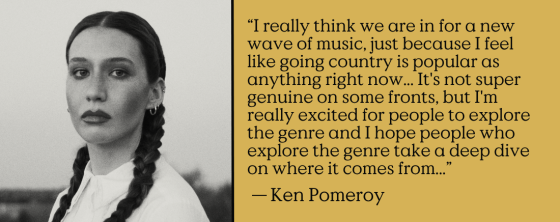
Did it help?
Yeah, absolutely. I think so.
That’s good. How about “Cicadas.” This is one of the most energetic songs, in my opinion, and it’s got this line in there about the cicadas crying out to you. Why were they crying to you?
“Cicadas” was actually the first song that we recorded when we started the record. We weren’t even sure if we were going to do a record, but after that song, [we knew]. It was such an experience, because the ending of the song, when it kind of goes back and forth, that was a total accident. I did not mean to do that, but beautiful things kept happening in this song just completely by accident, so it was a really great sign of reassurance that we were doing something in the right direction. I was so, so worried. I had been working on my music for a bit, and I was like, “Man, I really hope this is the one.” … I wrote that song as I was about to turn 20 years old, and cicadas were always a constant in my childhood. That was one of the only constants that I just knew 100 percent they were going to be there every summer. And I wanted a reminder of that a little bit, just to maybe prove to myself, that there was something stable.
“Innocent Eyes” is such a beautiful track about, I guess, looking back on life with clarity. When you look back, what does the story look like?
Yeah, so “Innocent Eyes” is totally about taking off the rose-colored glasses. Looking back at some of the things you had gone through growing up, or even looking at your parents in a different way. Growing up, it’s really difficult to just see parents as people. “Innocent Eyes” is when you’re a kid, you think your parents can do no wrong and they’re there for you and that they want everything the best for you. And then you grow up and you realize they’re just people. They’re just people that had a kid. And in my case, I was a complete accident and kind of a product of something very quick, and so I was not necessarily meant to be here. And the two people that brought me here did not love each other whatsoever. And so I looked back at that wondering how that shaped me a little bit. And I think that’s where the song started.
Photo Credit: Kali Spitzer

